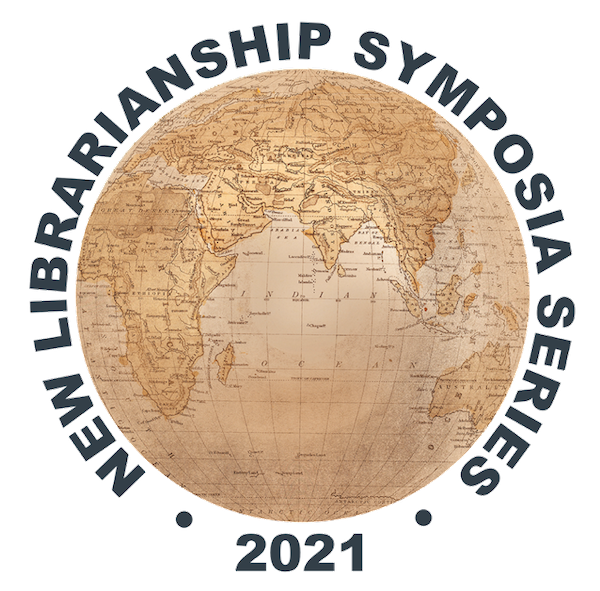Submission Type
Paper Abstract Submission
Symposium Selection
Post-neutrality librarianship
Keywords
Neutrality, activism, librarianship, social justice, democracy
Abstract
Revisiting the ideal of neutrality
The idea of a neutral library and a neutral librarian is appealing. Without influencing or judging, the librarian trusts the citizens own judgement and steps away from her own opinion in order to serve and guide the users. The notion of neutrality as an ideal has been the dominating position among both librarians and Library and Information Science-researchers.
Advocates for the principle of neutrality claim that the idea of neutrality is both an expression of representative democracy and respect for the individual’s rights and that neutrality is an active choice (Blomgreen & Sundeen, 2020; Tewell, 2018). One can argue, that it is by adhering to this principle, the library has gained its credibility and trustworthiness. Other parts of LIS-research have questioned the idea of neutrality; in the representation of materials on the shelves, in the categorization and the role of the librarian (Drabinski 2013, Mathiesen & Fallis 2008, Iversen 2008). According to this more activistic part of the LIS-field, insistence of neutrality contributes to reproduction of oppressive structures that historically has been dominating society, they claim that it is necessary to reject the idea of neutrality to serve the whole community.
In my masters thesis (Bollerup, 2021), I conclude that the question of neutrality should not be treated as binary. Both advocates for a neutral approach and an activistic approach justify their work from the same core value: a library and a librarian should serve all citizens and the whole community. Climate, racism, sexism, inequality etc. should not be seen as controversial political topics, but as common human responsibilities, also for the library and the librarian. Instead of making the principle of neutrality a choice – to be or not to be neutral – let us ask: What values do we want our library to reflect? Maybe it is not neutrality as a value but democratic values such as social justice, equity and solidarity.
___________________
List of references
Bollerup, A. (2021). The librarian on the soapbox: between neutrality and activism. Masters thesis, University of Copenhagen. Denmark.
Blomgren, R. & Sundeen, J. (2020). Offentliga bibliotek som arena för aktivism: En fallstudie av vänsterpolitisk biblioteksideologi p 1970- och 2010-talen. In Nordisk kulturpolitisk tidskrift (Vol. 23, Issue 2, p. 159–179).
Drabinski, E. (2013). Queering the Catalog: Queer Theory and the Politics of Correction. The Library Quarterly (Chicago), 83(2), 94–111.
Iverson, S. (2008). Librarianship and Resistance. I: Lewis, A. (2008). Questioning library neutrality : essays from Progressive librarian. Library Juice Press.
Mathiesen, K., & Fallis, D. (2008). Information Ethics and the Library Profession. I: Imma, K., & Tavani, H. (2008). The Handbook of Information and Computer Ethics (1st ed., pp. 219–244). Wiley.
Tewell, E. (2018). The Practice and Promise of Critical Information Literacy: Academic Librarians’Involvement in Critical Library Instruction. College & Research Libraries, 79(1).
Included in
Revisiting the ideal of neutrality
Revisiting the ideal of neutrality
The idea of a neutral library and a neutral librarian is appealing. Without influencing or judging, the librarian trusts the citizens own judgement and steps away from her own opinion in order to serve and guide the users. The notion of neutrality as an ideal has been the dominating position among both librarians and Library and Information Science-researchers.
Advocates for the principle of neutrality claim that the idea of neutrality is both an expression of representative democracy and respect for the individual’s rights and that neutrality is an active choice (Blomgreen & Sundeen, 2020; Tewell, 2018). One can argue, that it is by adhering to this principle, the library has gained its credibility and trustworthiness. Other parts of LIS-research have questioned the idea of neutrality; in the representation of materials on the shelves, in the categorization and the role of the librarian (Drabinski 2013, Mathiesen & Fallis 2008, Iversen 2008). According to this more activistic part of the LIS-field, insistence of neutrality contributes to reproduction of oppressive structures that historically has been dominating society, they claim that it is necessary to reject the idea of neutrality to serve the whole community.
In my masters thesis (Bollerup, 2021), I conclude that the question of neutrality should not be treated as binary. Both advocates for a neutral approach and an activistic approach justify their work from the same core value: a library and a librarian should serve all citizens and the whole community. Climate, racism, sexism, inequality etc. should not be seen as controversial political topics, but as common human responsibilities, also for the library and the librarian. Instead of making the principle of neutrality a choice – to be or not to be neutral – let us ask: What values do we want our library to reflect? Maybe it is not neutrality as a value but democratic values such as social justice, equity and solidarity.
___________________
List of references
Bollerup, A. (2021). The librarian on the soapbox: between neutrality and activism. Masters thesis, University of Copenhagen. Denmark.
Blomgren, R. & Sundeen, J. (2020). Offentliga bibliotek som arena för aktivism: En fallstudie av vänsterpolitisk biblioteksideologi p 1970- och 2010-talen. In Nordisk kulturpolitisk tidskrift (Vol. 23, Issue 2, p. 159–179).
Drabinski, E. (2013). Queering the Catalog: Queer Theory and the Politics of Correction. The Library Quarterly (Chicago), 83(2), 94–111.
Iverson, S. (2008). Librarianship and Resistance. I: Lewis, A. (2008). Questioning library neutrality : essays from Progressive librarian. Library Juice Press.
Mathiesen, K., & Fallis, D. (2008). Information Ethics and the Library Profession. I: Imma, K., & Tavani, H. (2008). The Handbook of Information and Computer Ethics (1st ed., pp. 219–244). Wiley.
Tewell, E. (2018). The Practice and Promise of Critical Information Literacy: Academic Librarians’Involvement in Critical Library Instruction. College & Research Libraries, 79(1).


